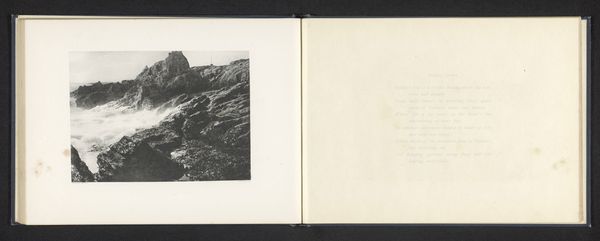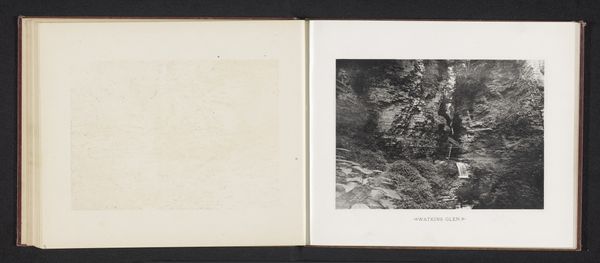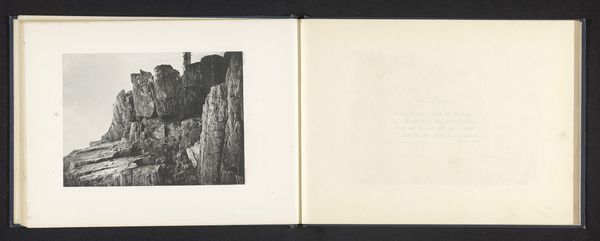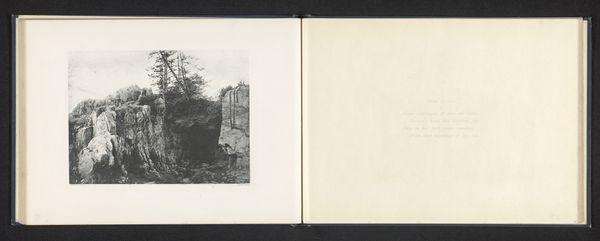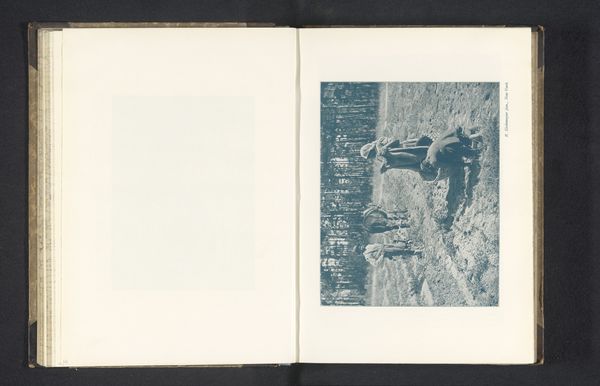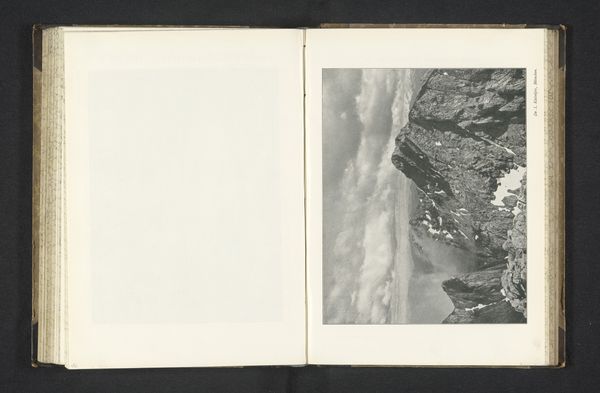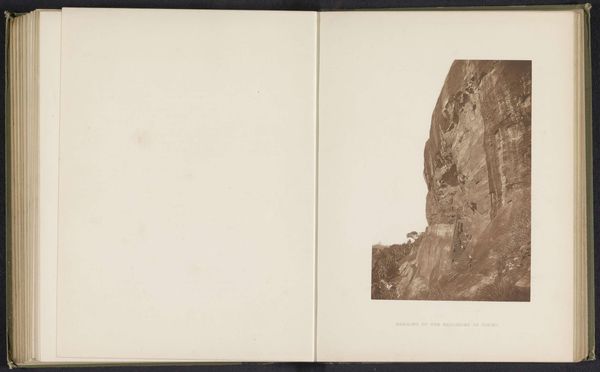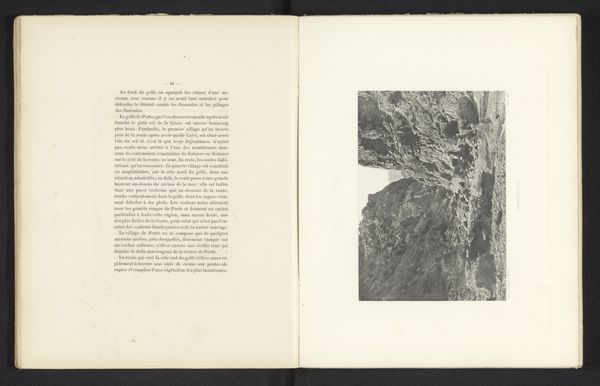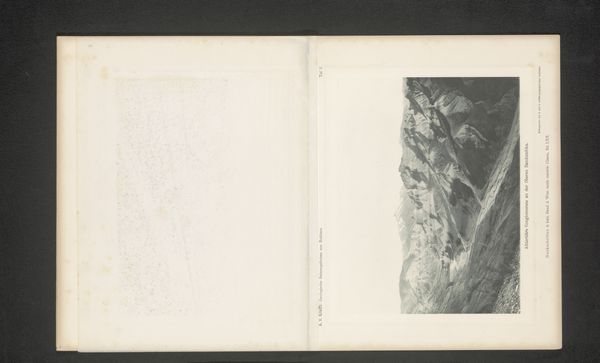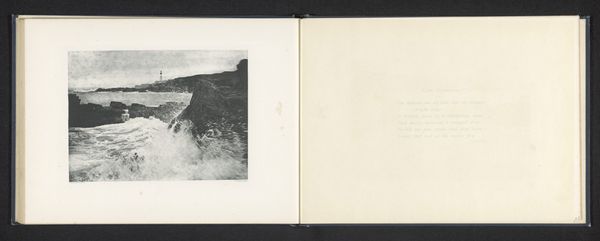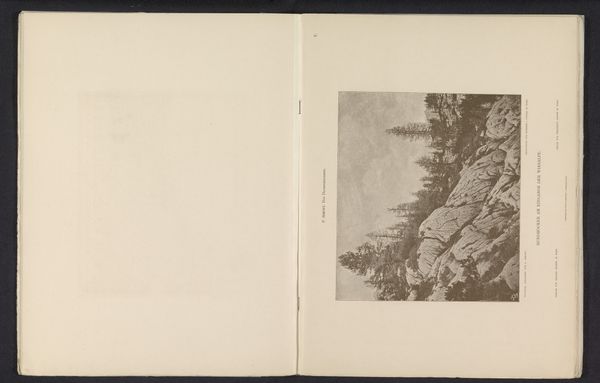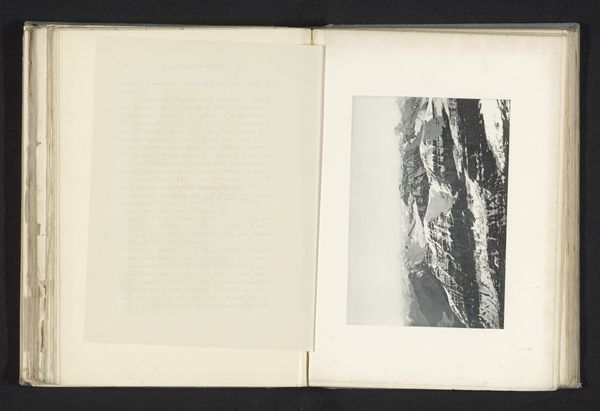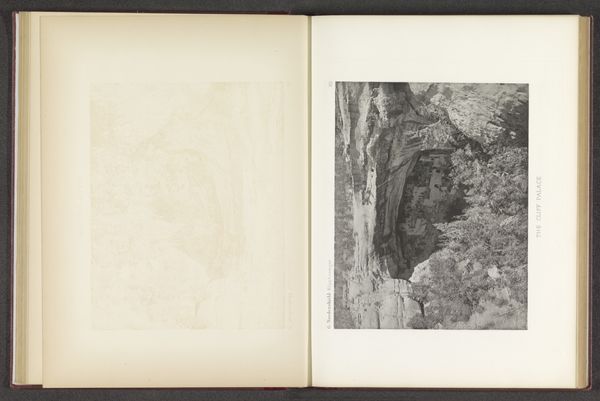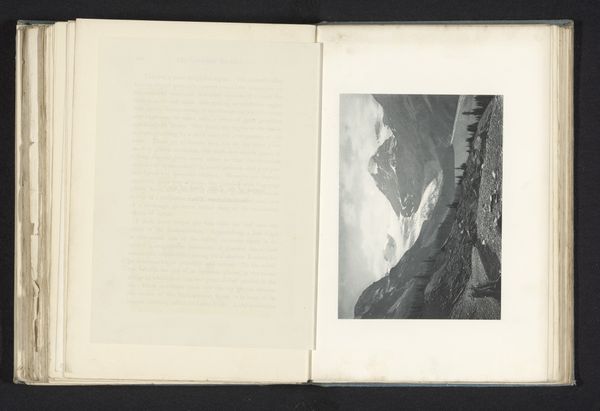
photography
#
still-life-photography
#
pictorialism
#
landscape
#
photography
Dimensions: height 141 mm, width 190 mm
Copyright: Rijks Museum: Open Domain
Editor: So, here we have a photograph entitled "Gezicht op een klif waar water tegen aanslaat in Maine," placing it sometime before 1890. It captures a cliffside scene in Maine and is done in the style of pictorialism. The mood feels rather dramatic, the way the water crashes against the rocks...What do you see when you look at it? Curator: I see more than just a landscape; I see a powerful statement about nature's resistance and force. Before 1890, in the burgeoning era of industrialization, representations of untamed landscapes served as both an escape and a challenge to the rapid societal changes. Who do you think had access to places like the Maine coast during that time, and whose perspectives were being centered in landscape photography? Editor: Well, likely wealthy, white individuals, given travel limitations and social structures of the time. So, the image could be seen as reinforcing a certain privilege and romanticization of nature, separate from the realities of those who might have had a very different relationship with the land. Curator: Precisely. Think about how the photographer frames the 'wild'—controlled, almost staged. This aligns with pictorialism's attempt to elevate photography to 'high art' by mimicking painting. It distances the viewer from the physical labor and complex power dynamics inherent in accessing and claiming such landscapes. What does that juxtaposition mean for today’s viewers, when climate change and access to nature are at the forefront of our social consciousness? Editor: It definitely complicates the initial impression. It’s not just a pretty scene, but also a reflection of power, privilege, and perhaps a lost connection to the land for many. I had not considered that perspective; it's given me a new appreciation for analyzing art with those ideas in mind. Curator: Indeed, understanding the social and political context can transform our experience and prompt us to question whose stories are told and how. Art is never truly separate from the world.
Comments
No comments
Be the first to comment and join the conversation on the ultimate creative platform.
